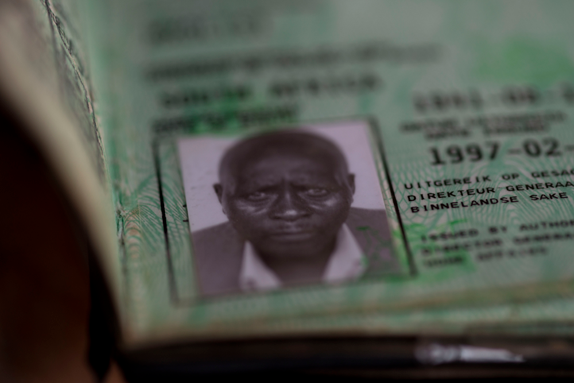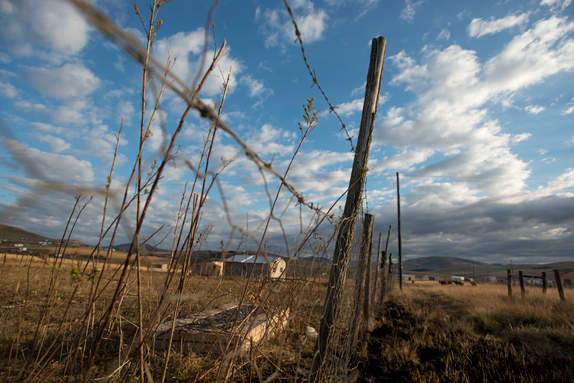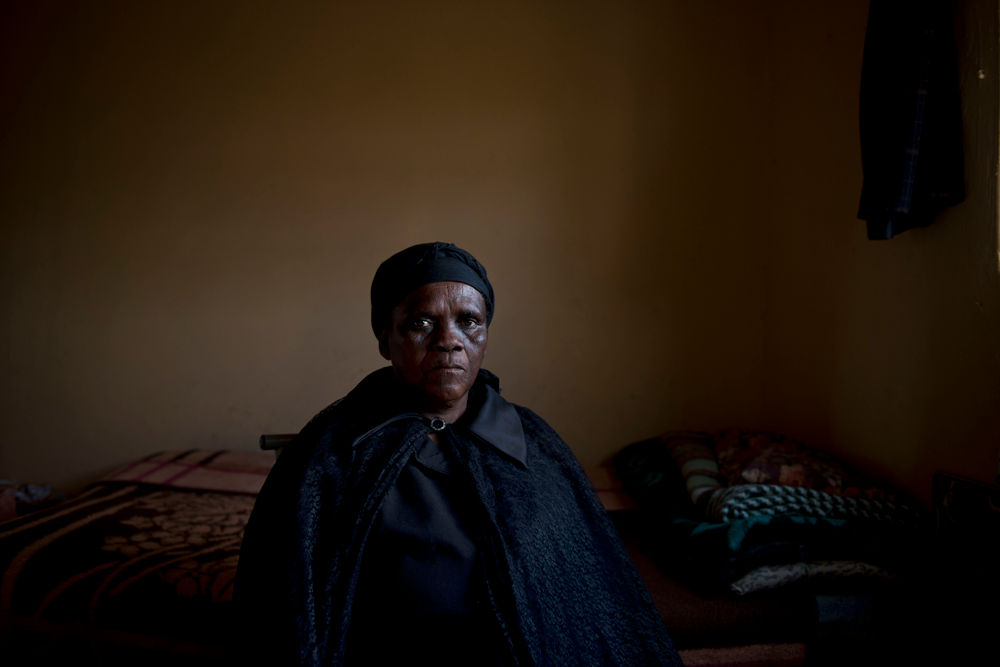MZUKISI SOMPETA
LUSIKISIKI, EASTERN CAPE
The massacre at Marikana has sent ripples of death through the families of the men that died that day. Mabhengu Sompeta says that when police killed her son, Mzukisi, on August 16 2012, they also killed her husband, Mxolisi.
“He died two weeks after we buried my son on September 2,” she says, speaking through eyes glassy with tears. “The death of my son led to the death of my husband.”
She remembers sitting with her husband and Mzukizi’s son, Sinawo (12), watching television, when Mxolisi suggested switching channels “to see what is happening in Marikana”.
Mabhengu says: “They were showing videos of the killing and I wasn’t watching what my husband was doing. My grandson was watching my husband and said: ‘Grandma! Grandma! Look at grandfather, he is rolling his eyes.”

Mxolisi Sompeta had suffered a heart attack. He died that night.
Mabhengu says Sinawo, who was close to his grandfather, “always following him around and showing him how to use the technology in the house”, is now living with relatives in Bizana so as “not to be reminded” of that night, and losing his father also.
“Sinawo is doing better now, but even before his grandfather died, he used to just sit on his own and cry alone,” says Mabhengu.
There was also a “special bond” between Mzukisi and Mxolisi.
“When my son would visit from the mines, he would always bring a bottle of brandy for his father and they used to sit together in the kraal and talk for hours,” says Mabhengu. “You would feel the difference when my son was here.”
He was the sole breadwinner and would buy meat for the family meals. And he would bring gifts for his siblings and his nephews and nieces. Four grandchildren live with the Sompetas, and of their five remaining children, three are unemployed and still live at home.
Mxolisi was a miner at Bleskop and New Mine and when he retired, he used his savings to build up the family compound. He then returned to work as a security guard at a local school to supplement the couple’s pension.
Mabhengu’s eyes fire up when she talks about the police killing her son, and the lack of support her family has received from government since the twin tragedies. “The nature of my son’s death is unacceptable!” she rages, incandescent with anger.

“I don’t know how the government functions, because [politicians’] children go to school, they can eat, but my grandchildren have nothing. Because we are poor, they treat us like dogs. Look at my son’s grave; he was buried like a dog without a proper tombstone because we have no money.”
Mabhengu says the government “doesn’t understand our plight and don’t know how to respond to it”.
At a June meeting between the Marikana families and the department of social development, Mabhengu says the widows “had to cry and beg” to get food parcels.
She is also sceptical about the sustainability of the state’s proposals for crop-growing schemes in the area, aimed at the Marikana families and their broader communities.
Her criticism extends to the highest office in the land: “With [President Jacob] Zuma, he didn’t respond to the families of Marikana and he didn’t come to listen to us. He didn’t apologise or show remorse for what his police did, just like his commissioner [Riah Phiyega].”
“Mandela would have come to us,” mutters Mabhengu in the interview, which was conducted while former president Nelson Mandela was critically ill in hospital.
“Marikana was a sign of how things have changed since Mandela,” she says. “Now, we have a black government killing poor black people. Now we have black-on-black oppression.”

Leave a Reply
You must be logged in to post a comment.